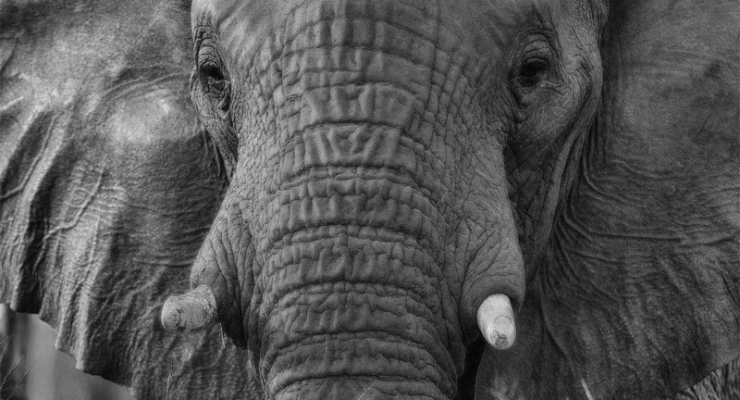The sad plight of elephants in Zambia— African elephant population data shows declining due to increasing demand for ivory.
The Zambian Wildlife Authority (ZAWA) is conducting aerial surveys of elephants and other large herbivores in three of Zambia’s national parks. The Nature Conservancy is facilitating the training of ZAWA ecologists on data collection and organizing the approximately 258 hours of flight time over the course of four weeks.
The results of this survey have implications far beyond Zambia’s borders, especially since this area lies in a region that is a stronghold for the African elephant. Funded by philanthropist Paul G. Allen, this endeavor is part of a continent-wide effort called the Great Elephant Census. This count will be the first pan-African census in over 40 years. Researchers in 20 countries will use a standardized method of data collection to create an up-to-date picture of the status of African elephants. The insights revealed through this survey can help create tailored management plans to more effectively protect elephants and deploy the limited conservation resources and dedicated rangers where they will be able to make the most impact.
By now, most people know that the African Elephant is in danger. Increasing demand for ivory from places like China, the Philippines and even the United States have sent elephant numbers plummeting recent decades. In 1981, Zambia alone had an estimated 160,000 elephants. Today their number is likely one tenth of that.
“Aerial surveys are an important part of Zambia’s wildlife management strategy. You can’t effectively manage wildlife programs unless you know how many animals you have. An accurate count is the starting point and the most important piece in a broader wildlife management strategy,” said Eric T. Schultz, U.S. Ambassador to the Republic of Zambia.
“Wildlife is one of Zambia’s most valuable renewable resources and it needs to protect it because without it there is no tourism. Tourism is one of the industries that has a huge potential to contribute to Zambia’s economic growth; without these animals, there is no tourism,” said Ambassador Schultz.
“In 1981, Zambia alone had an estimated 160,000 elephants. Today their number is likely one tenth of that. It’s critical to deploy Zambia’s limited conservation resources and dedicated rangers where they will be able to make the most impact,” said David Banks, Africa Managing Director, The Nature Conservancy.
“These aerial elephant surveys – the first pan-African census in over 40 years – will not only help save elephants but also have positive implications far beyond Zambia’s borders.”
“This information will be how we arm ourselves for the next phase in the battle to save elephants. And we must begin now,” said Banks.
The Nature Conservancy works in Zambia to fund and facilitate ranger operations, establish community-led conservation programs, and with the Zambian Government on wildlife laws to stop poaching and ensure that communities share the benefits of conservation.
Resources: Photos, National Geographic Blog by Eric T. Schultz, U.S. Ambassador to the Republic of Zambia and David Banks, Africa Managing Director, The Nature Conservancy, The Nature Conservancy Work in Zambia Photo Credit - Kenneth K. Coe

Leave a Reply